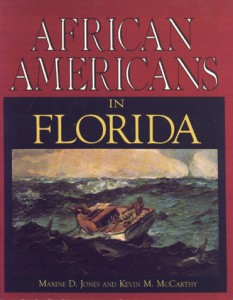By Dennis B. Rogers, PhD
January 22, 2012
(submitted by Greg Thrasher, VOD Washington Bureau contributing editor)
What a difference a day makes in the campaign for the U.S. Presidency. The South Carolina Republican Primary was won by Newt Gingrich, a Georgian with a great deal of political baggage. According to exit poll data, evangelical Christians, Tea Party members and over 50-year-old Southerners gave the former House Speaker 40% of the South Carolinian vote (243,153 votes). Mitt Romney earned 27.8% of the vote (167,279 votes), Rick Santorum earned 17% (102, 055 votes), and Ron Paul earned 13% (77,933 votes). Let’s take a closer look at the two front runners.
What are the nature and the origins of Newt Gingrich’s victory? Having won the presidential debates while displaying vehemence and partisan warriorhood, he was belligerent in the face of hard questions by news people like Juan Williams of Fox News Network. He made racist comments in South Carolina that are not worthy of repeating. The comments reveal his political psychology while his actual movie-in-tribute to Ronald Reagan demonstrates to Tea Party members that he will keep up the conservative wing of the party.
As a holder of a Ph.D. in Modern European History and as the author of 27 books, Gingrich is an avid thinker. After serving as the Speaker of the U.S. House of Representatives, he understands the social and cultural nuances—and the political nature and history—of the 435 U.S. Congressional Districts. For example, he won each of the seven Congressional Districts in South Carolina.
In response, the Assistant Democratic Leader, Representative James Clyburn of the 6th Congressional District in SC, stated in an interview on CSPAN the day after the election that, “[Newt Gingrich] denigrates the Office of the Presidency and people trying to make a way during these tough economic times.” It is important to remember, of course, that South Carolina was the scene of race baiting in the Democratic presidential primaries in 2008. Also, since 1980 the S.C. Republican primary winner has gone on to be the Republican Presidential nominee.
But while Gingrich captures the SC victory and much of the attention these past few days, most election watchers are wondering what happened to former front runner Mitt Romney? He has offshore bank accounts in the Cayman Islands that have been traced back to P.O. Boxes at the local post office; he has consistently paid a low tax rate of 15%; and his Party seems troubled to discern where he actually stands on hot-bed political issues. As a result, Governor Romney finds himself on the defensive regarding the tax returns that as of Monday, January 23, 2012, he still refuses to release. By most accounts, he is in a political tailspin.
Case in point: Mitt Romney’s religious affiliation (he is a Mormon) and financial decisions were underlying factors to his defeat in SC, and more than ever people are talking about both issues. Although better financed than the other candidates, Romney has lost any semblance of invulnerability—and just as the Florida primaries begin. Add to this the reversal of fortune in Iowa, wherein after a vote count Rick Santorum was the actual victor. For the first time in American political history, the first three primaries have three distinct winners.
What is the “political mathematics” of the Republican Presidential Primary’s end game? According to the Republican Party (and adopted by the RNC in September 2008), of the 2,286 possible delegates, a candidate must accumulate 1,144 delegates to win the primaries. Currently, of the pledged delegates, Gingrich has 27, Ron Paul has 10, Mitt Romney has 18, and Rick Santorum has 7. The state of Florida is a winner-takes-all delegates state. The previous states have split the delegates based on percentage of the votes.
 Before the Florida primary begins on January 29th, the primary debates unfold on January 23 and 26 in Tampa and Jacksonville, Florida. The interaction of leadership among the three million African Americans in Florida is imperative to shaping the debates. With 24 congressional districts and four African American Members of Congress in the State (that’s three Democrats and one Republican), the following issues should be substantially addressed: Latino immigration and employment and financing opportunities. As we tune into the debates and the discussions, it is imperative that African American and Latino scholars and organizers find meaningful ways to impact the election both on the Republican and the Democratic fronts.
Before the Florida primary begins on January 29th, the primary debates unfold on January 23 and 26 in Tampa and Jacksonville, Florida. The interaction of leadership among the three million African Americans in Florida is imperative to shaping the debates. With 24 congressional districts and four African American Members of Congress in the State (that’s three Democrats and one Republican), the following issues should be substantially addressed: Latino immigration and employment and financing opportunities. As we tune into the debates and the discussions, it is imperative that African American and Latino scholars and organizers find meaningful ways to impact the election both on the Republican and the Democratic fronts.
Dennis B. Rogers, PhD is a graduate of the Howard University Department of Political Science where he majored in Political Theory and Black Politics. He was a friend, colleague, and student of Dr. Ronald Walters. He resides in Washington, DC, and can be reached at http://www.DennisBRogers.info or email at Dennis.Rogers.PhD@Gmail.com.









To our valued readers during the presidential campaign Dr. Rogers will be providing commentary with critical insights and analysis of all the significant developments right from the core of the nation’s capitol.